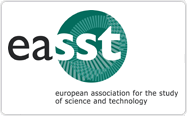Framing Prototypes
The Fast Breeder Reactor in France (1950s–1990s)
DOI:
https://doi.org/10.23987/sts.55322Abstract
This paper considers a crucial moment in the innovation process: the shift from a research phase to an industrial phase. The empirical study examines the development in France of Fast Breeder Reactor technology (FBR), from the 1950s to the early closure of the Superphénix plant in 1997. A turning point occurred in the late 1960s, when several European countries judged that the FBR technology was a promising electricity generation technology that would soon be mature for commercialisation, in a context of technological nationalism and future energy scarcity. In this paper, we analyse how the framing of the resulting prototype as “industrial” entailed an impact on decisions during the three decades that the project lasted. Aiming at describing the project actors in action without judging their decision-making processes, we use the ‘framing’ concept preferably to other approaches such as ‘path dependency’. This concept choice is the subject of the discussion.





